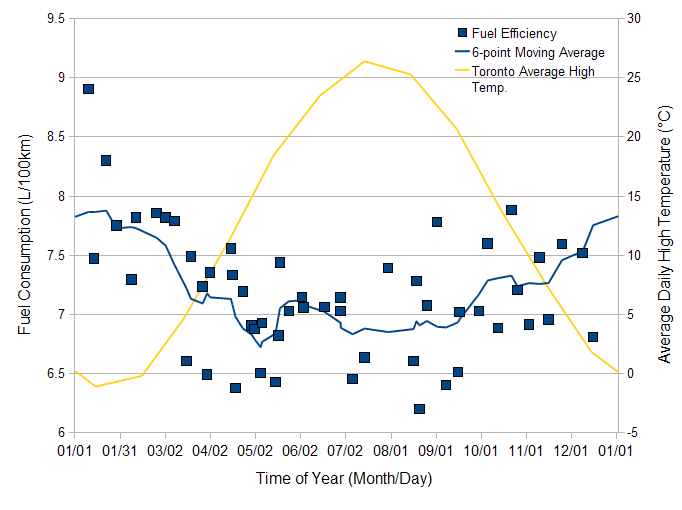It is well-known that a car’s fuel efficiency decreases during the winter months. There are many potential contributors, including increased air density causing drag, excessively rich fuel mixture from cold starts taking a long time to warm up, increased pumping losses from dense cold air intake, increased engine oil viscosity, increased rolling friction from colder tire rubber, and probably more I don’t know about. This is an attempt at quantifying the overall effect, but it doesn’t distinguish between the causes.
Test Methodology
This is data from a 2003 Corolla CE, collected between Jan. 2009 and Nov. 2010. Each data point is the fuel efficiency for one tank of gasoline at the time of the refueling. The trips consist mostly of a mix of highway and city driving with about 60% highway by time traveled. Data points from long highway-only trips have been removed. The month and day of the fill-up is plotted, with the year ignored, so the resulting graph is cyclical with a period of one year.
Results

There is a noticeable seasonal dependence of fuel efficiency, and is correlated with average temperature, being worst in mid-January. Winter vs. summer fuel efficiency differs by about 15%, but there is also significant random variation of comparable magnitude between fill-ups. I don’t see evidence that the use of air conditioning during the hottest summer months has a big impact on fuel efficiency.